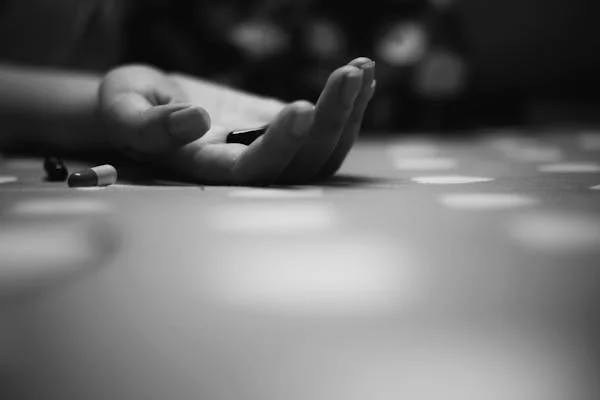How long do marathon runners prepare for race day? Weeks? Months? Years?
They spend a good amount of time training, resting, and nurturing their body and mind. Recovery from addiction works much the same way. Just stopping the substance use and sitting still is not helpful enough. One needs to build a sustainable foundation for lasting wellness.
If you or someone you know is going through addiction recovery, this blog is going to help answer why self-care is essential during addiction recovery.
Understanding self-care in recovery
Recovery demands more than just abstaining from substances. It calls for a complete lifestyle transformation that prioritises your physical, emotional, and spiritual well-being.
Take self-care as your daily maintenance routine. Just like you don’t skip brushing your teeth or taking a shower, you shouldn’t skip the practices that keep your recovery strong.
When you first step onto the path of recovery, you might feel overwhelmed by all the changes ahead. That’s perfectly normal.
Your self-care routine doesn’t need to be perfect or follow a strict regimen. Instead, make conscious choices that support your healing journey. These choices become the building blocks of your new life. It creates stability and strength where chaos once ruled.
The science behind self-care and recovery
The impact of addiction on the brain is profound, but so is the brain’s ability to heal due to neuroplasticity. During active addiction, your neural pathways become rewired to prioritise substance use over natural rewards. Dopamine, the chemical messenger associated with pleasure and reward, floods your system in amounts far beyond what natural activities can produce.
However, research shows that consistent self-care practices can help restore these neural pathways. Simple activities like taking a walk in nature, sharing a laugh with friends, or accomplishing a small goal can trigger the release of natural feel-good chemicals. Over time, these experiences help rebuild your brain’s natural reward system.
Studies also show that patients in mental rehabilitation centres who maintain regular self-care routines show significantly better outcomes in their recovery journey. The combination of physical activity, emotional processing, and social connection creates a powerful foundation for healing.
Physical well-being in recovery
Your body has likely weathered many storms during addiction. Now is the time to treat it with the care it deserves. Exercise doesn’t need to mean intense workouts or gruelling routines. Start with gentle movement that feels good. A short walk around your neighbourhood, stretching in the morning, or dancing to your favourite music all count as physical activity.
Sleep becomes crucial during recovery, though many people struggle with it initially. Your body is adjusting to functioning without substances, and sleep patterns might be irregular at first. Create an environment that promotes rest – keep your bedroom cool and dark, limit screen time before bed, and try to maintain consistent sleep and wake times.
Nutrition is also important to heal your body and mind. Start with regular meals, even if you’re not feeling particularly hungry. Focus on whole foods that provide sustained energy. Consider working with a nutritionist who understands recovery to develop an eating plan that supports your healing.
Emotional health and processing
Recovery brings up many emotions that substances once numbed. Learning to process these feelings without turning to drugs or alcohol is essential for long-term sobriety. Journaling will give you a private space to explore your thoughts and feelings without judgment. Write about your experiences, fears, hopes, and daily victories. Looking back on these entries can show you how far you’ve come.
Therapy provides professional guidance through the complex emotional landscape of recovery. A skilled therapist can help you understand your triggers, develop coping strategies, and process past trauma. Both individual and group therapy sessions offer unique benefits. Individual sessions allow for deep personal work, while group sessions help you realise you’re not alone in your struggles.
Mindfulness practices teach you to observe your thoughts and feelings without getting caught up in them. This skill proves invaluable when dealing with cravings or difficult emotions. Start small – even five minutes of mindful breathing can make a difference. As you practice, you’ll develop greater awareness of your emotional states and better ability to respond rather than react.
Building social connections
Human connections are vital in recovery, though it might feel challenging at first. Many people find they need to rebuild their social networks from the ground up. Support groups provide a foundation of understanding and acceptance. Here, you’ll meet others who truly understand your journey because they’re walking it, too.
Family relationships require special attention during recovery. Trust may need rebuilding, and both you and your family members might need to learn new ways of relating to each other. Family therapy provides a safe space to work through these challenges together.
Creating new friendships with people who support your recovery goals becomes essential. These connections might develop naturally through support groups, hobby classes, or volunteer work. Look for activities that interest you and allow for genuine connection with others who share your values.
Making self-care sustainable
Think of building your self-care routine like constructing a house – you need a strong foundation before adding the details. Start with basic practices that feel manageable. Maybe that’s drinking enough water each day or taking a short walk. As these habits become natural, you can add more complex practices.
Pay attention to what works for you and what doesn’t. Self-care isn’t one-size-fits-all. What energises one person might drain another. Keep track of how different activities affect your mood and energy levels. This awareness helps you build a personalised routine that truly supports your recovery.
Remember that setbacks are normal. You might miss a day of exercise or slip back into negative thinking patterns. These moments don’t erase your progress. Instead, they provide opportunities to practice self-compassion and recommit to your goals.
Summary
Your brain has the power to heal itself because of neuroplasticity. But in that duration, abstaining from substances is not enough. You need other transformations in your lifestyle as well. You need to prioritise physical, emotional, and spiritual well-being.
Don’t feel overwhelmed if you can’t do everything at once. Nobody is perfect. The goal is to make conscious choices that will support your healing journey.
With determination and consistency, everything is possible, and this is just a small roadblock in your long life. Be strong and believe in yourself, and nothing will defeat you.





